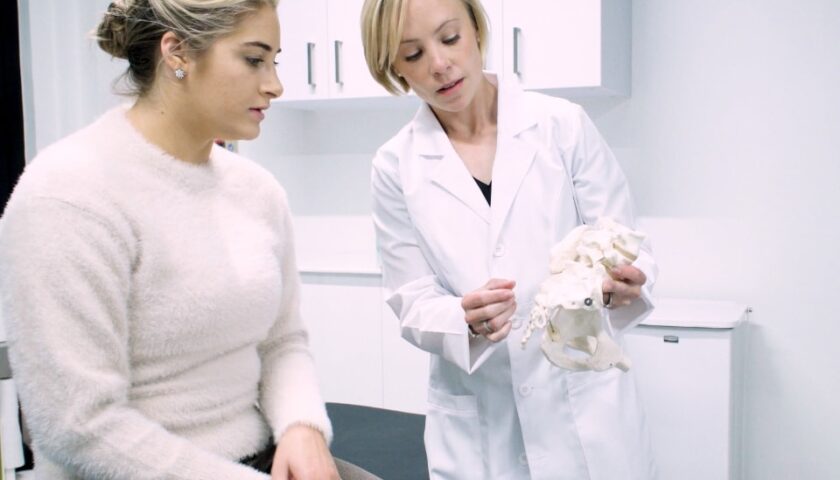Attention Deficit Hyperactivity Disorder (ADHD) is often seen as a condition that primarily affects individuals in their academic or professional lives. However, its impact on relationships, particularly romantic ones, is profound and often underestimated. When one or both partners in a relationship have ADHD, it can present unique challenges that require understanding, patience, and effective strategies for navigating daily life together. In this article, we’ll explore the dynamics of relationships involving ADHD, commonly known as TADHD (The ADHD Relationship), and discuss strategies for fostering understanding, communication, and mutual support to help couples thrive together.
Understanding TADHD
TADHD, or The ADHD Relationship, refers to romantic relationships where one or both partners have ADHD. ADHD is a neurodevelopmental disorder characterized by symptoms of inattention, impulsivity, and hyperactivity. These symptoms can manifest differently in each individual, but they often interfere with daily functioning and interpersonal relationships.
In TADHD relationships, the challenges associated with ADHD can impact various aspects of the partnership. Communication may be affected by impulsivity or inattentiveness, leading to misunderstandings or conflicts. Organization and time management issues can create stress and frustration, especially when it comes to shared responsibilities such as household chores or financial management. Additionally, ADHD-related impulsivity may influence decision-making and long-term planning, which can be a source of tension in the relationship.
Despite these challenges, TADHD relationships also have unique strengths. Individuals with ADHD often bring creativity, spontaneity, and enthusiasm to their partnerships. Their ability to think outside the box and embrace new experiences can inject excitement and vitality into the relationship. However, to truly thrive together, couples must learn to navigate the complexities of TADHD with empathy, patience, and proactive strategies.
Strategies for Thriving Together
Education and Awareness
Educate yourselves about ADHD: Learn about the symptoms, challenges, and strengths associated with ADHD. Understanding the neurobiological basis of ADHD can help both partners develop empathy and compassion for each other.
Raise awareness: Share information about ADHD with friends, family, and support networks to reduce stigma and promote understanding. Building a supportive community can provide invaluable emotional support and resources for managing TADHD as a couple.
Open and Honest Communication
Establish open communication: Create a safe space for honest dialogue where both partners feel comfortable expressing their thoughts, feelings, and concerns without fear of judgment.
Use effective communication techniques: Practice active listening, empathy, and validation to enhance understanding and connection. Clarify expectations, set boundaries, and negotiate compromises collaboratively to address ADHD-related challenges together.
Implement Practical Strategies
Develop routines and structures: Establish consistent daily routines and organizational systems to help manage ADHD symptoms and reduce stress. Use visual aids, checklists, and reminders to improve time management and task completion.
Delegate tasks and responsibilities
Identify each partner’s strengths and interests, and divide household chores and responsibilities accordingly. Delegate tasks based on individual preferences and abilities to promote efficiency and fairness.
Set realistic goals
Break tasks down into manageable steps and set achievable goals to prevent overwhelm and maintain motivation. Celebrate progress and accomplishments together to reinforce positive behaviors and build confidence.
Cultivate Empathy and Patience
Practice empathy
Recognize that ADHD is a neurobiological condition that affects behavior and cognitive functioning. Approach challenges with empathy and understanding rather than blame or criticism.
Be patient
Understand that change takes time and effort, and setbacks are a natural part of the process. Practice patience and resilience as you navigate the ups and downs of managing TADHD together.
Seek Professional Support
Therapy and counseling
Consider seeking couples therapy or counseling to address relationship issues related to ADHD. A qualified therapist can provide guidance, support, and practical strategies for improving communication, resolving conflicts, and strengthening the relationship.
Individual treatment
Encourage each partner to pursue individual treatment for ADHD, including medication, therapy, and lifestyle interventions. Managing ADHD symptoms effectively can enhance overall well-being and contribute to a healthier, more balanced relationship.
Conclusion
TADHD relationships present unique challenges, but with understanding, communication, and proactive strategies, couples can thrive together despite the obstacles. By educating themselves about ADHD, fostering open communication, implementing practical strategies, cultivating empathy and patience, and seeking professional support when needed, partners can build strong, resilient relationships that withstand the challenges of TADHD. With mutual support, understanding, and a shared commitment to growth, couples can create fulfilling and rewarding partnerships that endure the test of time.
Attention Deficit Hyperactivity Disorder (ADHD) is often seen as a condition that primarily affects individuals in their academic or professional lives. However, its impact on relationships, particularly romantic ones, is profound and often underestimated. When one or both partners in a relationship have ADHD, it can present unique challenges that require understanding, patience, and effective strategies for navigating daily life together. In this article, we’ll explore the dynamics of relationships involving ADHD, commonly known as TADHD (The ADHD Relationship), and discuss strategies for fostering understanding, communication, and mutual support to help couples thrive together.
Understanding TADHD
TADHD, or The ADHD Relationship, refers to romantic relationships where one or both partners have ADHD. ADHD is a neurodevelopmental disorder characterized by symptoms of inattention, impulsivity, and hyperactivity. These symptoms can manifest differently in each individual, but they often interfere with daily functioning and interpersonal relationships.
In TADHD relationships, the challenges associated with ADHD can impact various aspects of the partnership. Communication may be affected by impulsivity or inattentiveness, leading to misunderstandings or conflicts. Organization and time management issues can create stress and frustration, especially when it comes to shared responsibilities such as household chores or financial management. Additionally, ADHD-related impulsivity may influence decision-making and long-term planning, which can be a source of tension in the relationship.
Despite these challenges, TADHD relationships also have unique strengths. Individuals with ADHD often bring creativity, spontaneity, and enthusiasm to their partnerships. Their ability to think outside the box and embrace new experiences can inject excitement and vitality into the relationship. However, to truly thrive together, couples must learn to navigate the complexities of TADHD with empathy, patience, and proactive strategies.
Strategies for Thriving Together
Education and Awareness
Educate yourselves about ADHD: Learn about the symptoms, challenges, and strengths associated with ADHD. Understanding the neurobiological basis of ADHD can help both partners develop empathy and compassion for each other.
Raise awareness: Share information about ADHD with friends, family, and support networks to reduce stigma and promote understanding. Building a supportive community can provide invaluable emotional support and resources for managing TADHD as a couple.
Open and Honest Communication
Establish open communication: Create a safe space for honest dialogue where both partners feel comfortable expressing their thoughts, feelings, and concerns without fear of judgment.
Use effective communication techniques: Practice active listening, empathy, and validation to enhance understanding and connection. Clarify expectations, set boundaries, and negotiate compromises collaboratively to address ADHD-related challenges together.
Implement Practical Strategies
Develop routines and structures: Establish consistent daily routines and organizational systems to help manage ADHD symptoms and reduce stress. Use visual aids, checklists, and reminders to improve time management and task completion.
Delegate tasks and responsibilities
Identify each partner’s strengths and interests, and divide household chores and responsibilities accordingly. Delegate tasks based on individual preferences and abilities to promote efficiency and fairness.
Set realistic goals
Break tasks down into manageable steps and set achievable goals to prevent overwhelm and maintain motivation. Celebrate progress and accomplishments together to reinforce positive behaviors and build confidence.
Cultivate Empathy and Patience
Practice empathy
Recognize that ADHD is a neurobiological condition that affects behavior and cognitive functioning. Approach challenges with empathy and understanding rather than blame or criticism.
Be patient
Understand that change takes time and effort, and setbacks are a natural part of the process. Practice patience and resilience as you navigate the ups and downs of managing TADHD together.
Seek Professional Support
Therapy and counseling
Consider seeking couples therapy or counseling to address relationship issues related to ADHD. A qualified therapist can provide guidance, support, and practical strategies for improving communication, resolving conflicts, and strengthening the relationship.
Individual treatment
Encourage each partner to pursue individual treatment for ADHD, including medication, therapy, and lifestyle interventions. Managing ADHD symptoms effectively can enhance overall well-being and contribute to a healthier, more balanced relationship.
Conclusion
TADHD relationships present unique challenges, but with understanding, communication, and proactive strategies, couples can thrive together despite the obstacles. By educating themselves about ADHD, fostering open communication, implementing practical strategies, cultivating empathy and patience, and seeking professional support when needed, partners can build strong, resilient relationships that withstand the challenges of TADHD. With mutual support, understanding, and a shared commitment to growth, couples can create fulfilling and rewarding partnerships that endure the test of time.





